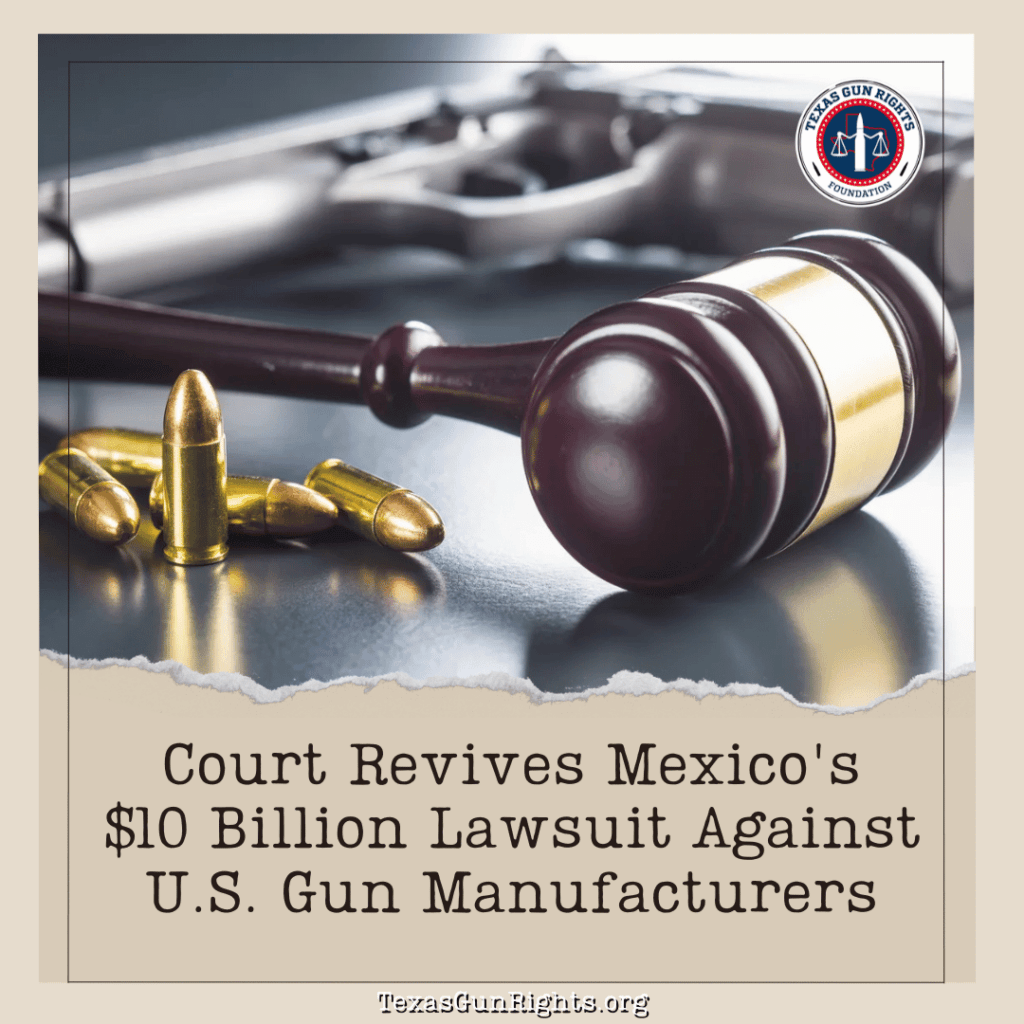
The U.S. District Court of Appeals for the First Circuit recently overturned a lower court ruling, thus reviving Mexico’s $10 billion lawsuit against prominent U.S. firearms manufacturers, including Smith & Wesson and Ruger.
Initially dismissed due to the Protection of Lawful Commerce in Arms Act (PLCAA), the lawsuit claims these manufacturers are responsible for violence by Mexican drug cartels, alleging that American gun companies facilitate illegal arms trafficking.
This revival signifies a potential threat to the rights of law-abiding American gun owners, as it challenges the PLCAA, a law designed to protect the firearms industry from being held liable for crimes committed with their products. The ruling by Obama-appointed Judge William Kayatta raises concerns about the judiciary’s role in gun policy and its impact on Second Amendment rights.
Chris McNutt, President of Texas Gun Rights, says this is an indirect strategy by the Biden administration to impose an assault weapons ban on the American people.
“Biden continues losing his war on gun owners, especially in his quest to ban the AR-15, better known as America’s Rifle. So if he can’t get his way legally, through congress, he’s going to continue trying to find unconstitutional ways to get it done, whether it is through executive order or working with foreign governments to try and bankrupt the American Firearms industry. He must be stopped.” McNutt stated.
By accusing gun manufacturers of supplying “military-grade weapons” like AR-15s, the lawsuit attempts to hold these companies financially accountable for violence in Mexico. Interestingly, Mexican cartels are known to possess military-grade weapons like rocket launchers, grenades, and machine guns, which are not sold in the U.S. civilian market. This highlights the complexity of cartel armament sources and questions the effectiveness of targeting U.S. gun manufacturers in reducing cartel violence.
Furthermore, the backdrop of the Obama administration’s Operation Fast and Furious, where U.S. agencies actually sent guns across the Mexican border in a botched attempt to track the cartels, adds to the controversy. This operation resulted in many guns ending up in the hands of criminals, complicating the narrative of U.S. gun manufacturers’ direct responsibility for cartel armaments.
